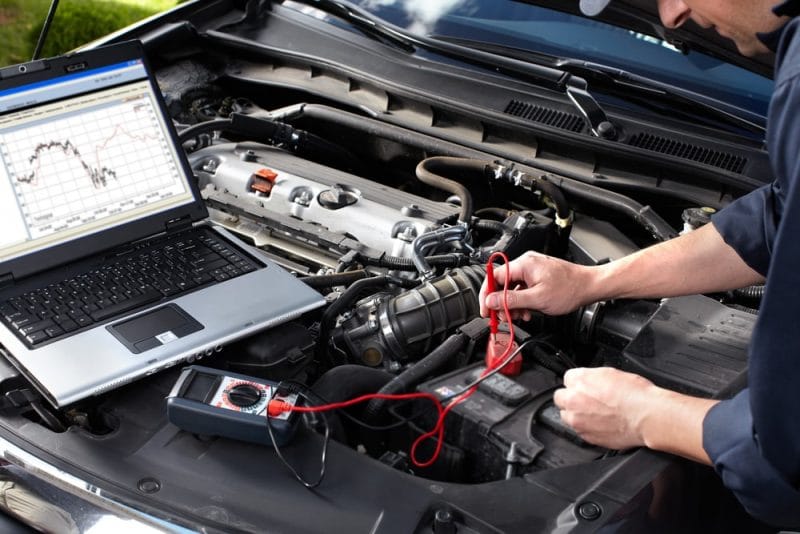How Can You Identify If The Vehicle Service Notice Is Real Or A Scam?
One of the most crucial parts under the hood is the engine control module, also known as the ECU. It sends and receives signals continuously to maintain the engine’s smooth operation, much like the brain of the vehicle. From timing to fuel delivery, the ECM regulates nearly every element of your engine’s operation. When it starts to break down, even in small ways, you’ll notice that your car acts differently. The difficulty is that the typical driver may not immediately recognize the issue because its failure symptoms often resemble those of other problems.
You can avoid needless repairs, many hours of guesswork, and even being stranded with a non-starting car by being aware of the signs of a failing ECM. You can address the issue before it becomes a major expense if you recognize these warning signs early. The ECM is so important that issues with it usually show up in ways that are very obvious, even though modern cars have a lot of sensors and electronics that can generate alerts for various reasons.
Is your engine light working well?
One of the first and most common signs of a failing ECM is the check engine light turning on unexpectedly. All contemporary cars have this indicator, which can signal a number of issues, including an ECM malfunction. The light turns on when the computer notices an irregularity, like a low sensor reading, a circuit failure, or an electrical problem with the module itself. The system uses this warning light to identify a chain reaction that may be caused by a malfunction in the ECM, which keeps an eye on numerous processes.
The tricky part is that the check engine light doesn’t let you know that the ECM is the problem. To be sure, a diagnostic scanner would be required to read the system’s stored trouble codes. In some cases, the light might indicate a small issue, like a loose gas cap; in other cases, it might indicate more serious internal computer issues. Because of this, it is essential to pay attention to the warning light and the vehicle’s driving behavior.
Is your engine misfiring or stalling?
When the ECM begins to malfunction, one of the most annoying symptoms is engine misfiring or stalling. This happens because the engine receives the wrong signals, which disrupts the exact timing of the fuel, air, and spark. If you are idling at a stoplight while driving, you might notice that the engine sputters, jerks, or shuts off entirely. These issues can be frightening and even dangerous especially in Thailand used cars, if they occur in crowded traffic or on the highway.
This symptom is particularly confusing because it tends to be inconsistent. The car might run perfectly one day and then struggle to stay on the road the next. Drivers are often confused by this unpredictable nature because it lacks a clear pattern. If there is no obvious mechanical explanation for misfires or stalls, such as damaged spark plugs or issues with fuel delivery, it is worthwhile to investigate whether the ECM is the cause.
Are you facing perceived issues with performance?
A malfunctioning ECM can also cause your car to feel suddenly slow or unresponsive. The ECM in your Toyota Land Cruiser pickup is designed to maintain the optimal fuel-to-air ratio and ensure precise timing so that the engine can produce consistent power. When it malfunctions, it throws off this balance, which leads to insufficient acceleration, hesitation when pressing the gas pedal, or a general lack of power. For those who drive regularly, it is hard to ignore these performance drops.
When you try to merge onto a highway or tow a load uphill, imagine your car struggling more than usual. This lack of responsiveness is a blatant sign that the ECM is not controlling engine performance effectively. Even though other issues like clogged filters or failing fuel pumps can also reduce power, a failing ECM becomes a very likely suspect when combined with other symptoms like stalling or warning lights.
Is your car’s fuel efficiency is dropping?
If you suddenly find yourself visiting the gas station more often, it could be the ECM. Because the system regulates how much fuel enters the engine, even a slight calculation error can cause it to burn more fuel than is required. As you spend more money on gas, this gradually accumulates and becomes visible in your budget. Drivers who track their mileage are often the first to notice this change, even before other symptoms show up.
The delicate balance between efficiency and operation is upset when an ECM malfunctions. The engine may run too rich if the computer doesn’t provide precise input, using more fuel than is required for the amount of air present. In addition to being expensive, this can raise emissions, which could result in environmental issues or failed inspections. When abnormal fuel consumption is detected early, you can connect the dots before the ECM fails entirely.
Is your car refusing to start smoothly?
A malfunctioning ECM may be the most serious symptom when the car simply won’t start. Due to inadequate air, fuel, and spark management, the module has malfunctioned so severely in this instance that the engine cannot turn over. In the event that the ECM is not coordinating the required components, the engine may crank but not start. This is when many drivers realize how important the ECM is.
A no-start condition does not necessarily indicate that the ECM is dead, though.It’s important to keep in mind that an ECM failure does not always mean that the system is dead. The cause may be a depleted battery, a problem with the fuel system, or a broken ignition switch. However, when paired with other symptoms like misfires, performance issues, or warning lights, a complete failure to start increases the likelihood of a failing ECM. Professional diagnostics are usually used to confirm this before replacing such a costly component.


Recent Comments